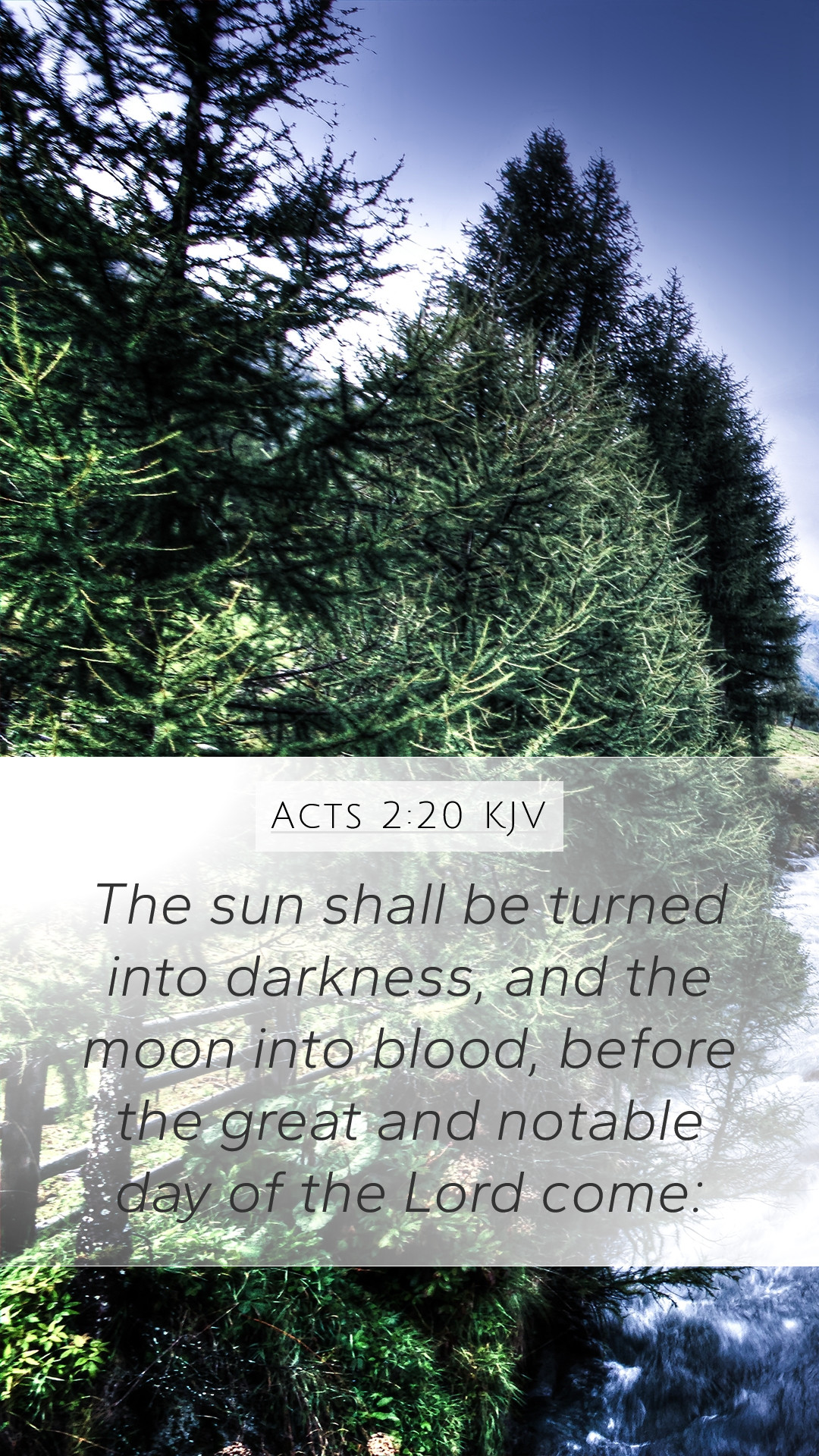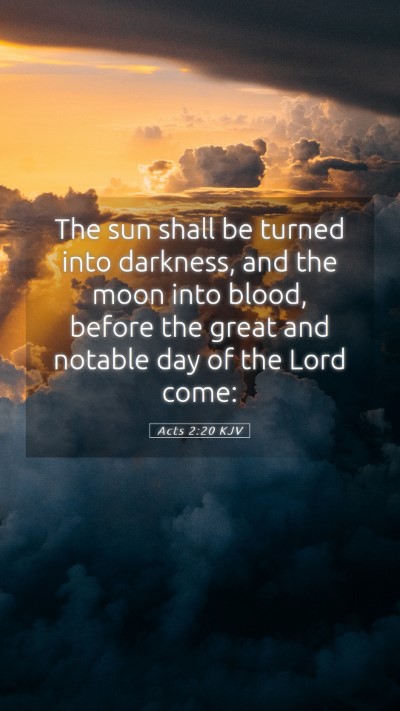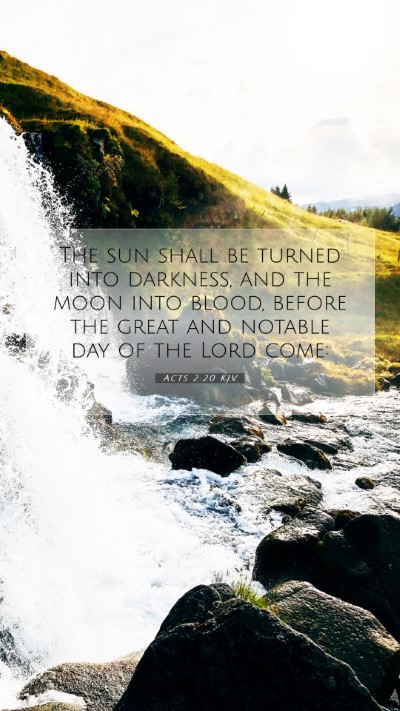Understanding Acts 2:20: Bible Verse Commentary
Acts 2:20 states: "The sun shall be turned into darkness, and the moon into blood, before that great and notable day of the Lord come." This verse, part of Peter's sermon on the day of Pentecost, carries significant implications regarding prophecy, God's sovereignty, and the coming of the end times. Here, we will explore the meaning of this passage, drawing from public domain commentaries by Matthew Henry, Albert Barnes, and Adam Clarke to provide a comprehensive Bible verse interpretation.
Overview of the Verse
Acts 2:20 is a quotation from the Old Testament prophet Joel (Joel 2:31), which emphasizes the signs that will accompany the 'great and notable day of the Lord'. This phrase points to a future event wherein God will intervene dramatically in human history.
Key Themes
- Prophetic Fulfillment: Peter uses Joel’s prophecy to validate the events of Pentecost as the fulfillment of God's promises.
- The Day of the Lord: The 'great and notable day of the Lord' refers to divine judgment and the culmination of history.
- Supernatural Signs: The turning of the sun into darkness and the moon into blood symbolize upheaval and transformation in the natural order, indicating God's powerful presence.
Commentary Insights
Matthew Henry's Commentary
Matthew Henry notes that this passage signifies divine judgments that precede the final day of the Lord. He emphasizes the urgency of repentance and readiness among believers. The imagery of the sun and moon suggests not only physical signs but also spiritual awakenings, calling people to recognize God’s sovereignty over creation.
Albert Barnes' Commentary
Albert Barnes highlights the significance of the 'day of the Lord' being a time of reckoning and restoration. He explains that these celestial signs illustrate the gravity of the events to come and serve as a warning for people to turn towards God. The blood moon symbolizes disaster and calls for a response from humanity.
Adam Clarke's Commentary
Adam Clarke provides an extensive explanation of the prophetic nature of this verse. He explains that the mentioned signs are also reflective of the tumultuous times that precede Christ’s return. Clarke implies that believers should view these prophecies not with fear, but with hope, as they herald the fulfillment of God's redemptive plan through Christ.
Applying Acts 2:20 to Daily Life
The message of Acts 2:20 transcends time, urging modern believers to remain vigilant and aware of God's ongoing work in the world. Understanding Scripture in this context encourages individuals to be proactive in their faith and to recognize signs of God's presence amidst life's uncertainties.
Personal Reflection
As individuals engage in Bible study, Acts 2:20 serves as a reminder of the importance of eschatological awareness and the call to evangelism. Reflecting on the gravity of God's judgment and the hope of His redemption allows believers to strengthen their faith and motivate others towards repentance.
Cross References
- Joel 2:31: The prophecy quoted, providing context and clarity.
- Matthew 24:29: Jesus speaks of cosmic signs preceding His return.
- Revelation 6:12: The opening of the sixth seal similarly describes celestial disturbances.
Conclusion
Acts 2:20 challenges readers to explore the depths of biblical prophecy and encourages them to engage seriously in Bible study. By studying this verse within its historical and prophetic context, believers can gain profound insights into the actions of God throughout history and the ultimate purpose embedded in His word.


